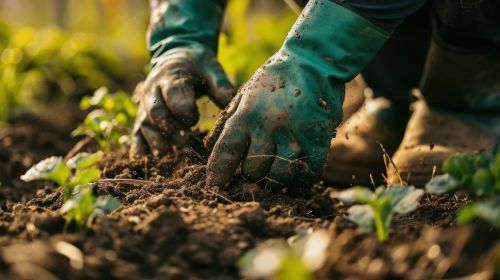
3 May 2024
Leader of the Liberal Democrats Ed Davey has reiterated his calls for a £1billion increase to the farming budget during a farm visit in Shropshire. He said that current farming spending isn’t delivering for rural communities, and that a new government needs to work hard for fairness in farming, pointing to his party’s farming rescue plan which would provide this financial boost, while Labour have also promised more support for farmers.
New research by charities Sustain and Friends of the Earth has shown that ten agribusinesses are responsible for producing almost double the excrement than that of the UK’s ten largest cities. They show that these ten businesses operate around polluted river catchments, and none have policies to stop pollution entering waterways, highlighting a need for more stringent regulation.
Expected food price rises due to winter flooding remain in the headlines, with new analysis from the Energy and Climate Intelligence Unit showing that wheat, barley, oats and oilseed rape yields could be down by 17.5% compared to last year. Waterlogged soils have meant that crops cannot be planted or fertilised, impacting farmer incomes, increasing the need for imports and likely increasing food costs.
A soil sensor which helps farmers reduce fertiliser use is being trialled in the UK following successful use in Europe. The soil station has sensors at two depths and measures the nutrients which move between them, helping farmers make more informed decisions about when fertiliser is needed, in turn increasing farm profitability.
An expert from the Royal Horticultural Society is encouraging gardeners to ditch their green waste bins and let garden waste compost at home to improve soil, save money and create habitats for wildlife. She describes it as counter intuitive to export garden waste and buy in compost, and points to the ability of natural matter to build soil structure.
Researchers in Finland have suggested that including soil microbes in dietary recommendations could combat many modern health issues. Their literature reviews showed that eating safe microbes from the soil can improve immunity and positively impact mental health. For example, studies have shown that people who don’t eat organic vegetables which are high in soil microbes are likely to be deficient in vital gut microbes.
Makers of the film Six Inches of Soil have partnered with 5m books to publish a book of the same name. The book tells the story of young British farmers who are standing against industrial food systems to farm in a soil friendly way, and includes chapters which examine the current agri-food system and contributions from industry experts.
Plantlife’s ‘No Mow May’ campaign has launched for its sixth year, encouraging gardeners, green space managers and local councils not to cut their grass for the month of May. During May soil traditionally starts to warm enough for grasses to start growing quickly, and during the campaign gardeners commit to not cut their grass to benefit wildlife, tackle pollution and store carbon below ground. You can share your pictures online using #NoMowMay!